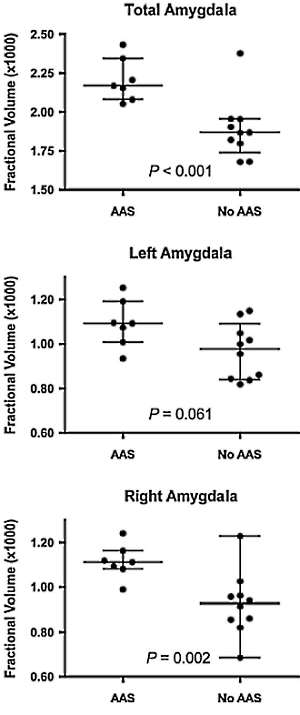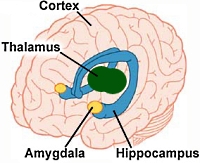|
Definition: "An ergogenic aid is any substance or phenomenon that enhances performance "
|
|
||||||||
04.05.2016 |
|
|
Anabolic steroids make you more scared
Anabolic steroids encourage the growth of parts of the brain that play a key role in the sensation of fear, psychiatrists at the university of Harvard discovered. This effect may mean that steroids not only make users more fearful and anxious, but also fretful and in the longer term depressed.
Study
All the bodybuilders were no longer young: all had already been training for an average of 20 years with weights.
When the pharmacological subjects took a course of steroids they usually used about 1500 mg of anabolic steroids per week.
Results

The effect of steroids on the amygdala is considerable, researcher Marc Kaufman announced in a press release [mcleanhospital.org 2015 Jun 15].
"The amygdala in the steroid users weren't just a little bit larger than the control group, they were more than 20 percent larger. That is a really marked difference, and it is particularly interesting because previous studies have shown that amygdala enlargement has been associated with aggression among other types of substance abuse populations."
Amygdala
Conclusion
Source:
More:
Archives: |
|

